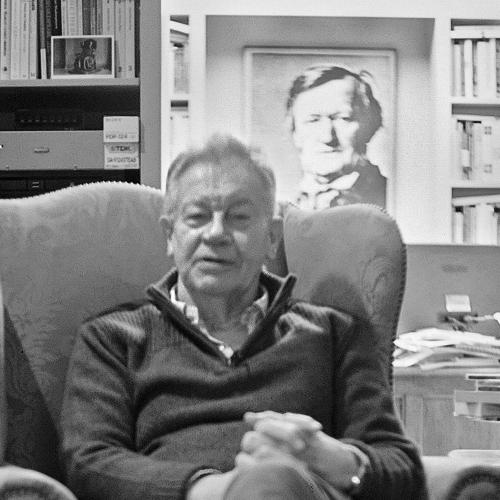COMPOSERS: Beethoven
LABELS: Hyperion
ALBUM TITLE: Beethoven
WORKS: Symphonies Nos 1-9
PERFORMER: Janice Watson (soprano), Catherine Wyn-Rogers (mezzo-soprano), Stuart Skelton (tenor), Detlef Roth (bass); Scottish CO; Philharmonia Orchestra/Charles Mackerras
CATALOGUE NO: CDS 44301-5
This very reasonably priced set consists of performances given at last year’s Edinburgh Festival, though the audience is so quiet – I only heard one cough in the whole series – that you might think these were studio recordings. We don’t even have any applause at the end, and that is something I miss in the case of at least the Ninth, where so magnificently exhilarating an account as Mackerras and the Philharmonia with the Festival Chorus provide positively demands a responsive cheer, and certainly got it on the actual occasion.
Any set of the Beethoven symphonies is going to have some performances that are more appealing than others. In general, I find Mackerras and the Scottish Chamber Orchestra, which play in the first eight, are more satisfying in the energetic, even aggressive movements than in the inward, relaxed or smiling ones. We get plenty of Beethovenian wit here, but not much benign warmth, of the kind that we should find in the first two movements of the Pastoral Symphony, which seem rather a trudge here. The zest of the ‘Happy gathering of country folk,’ the third movement, is immediately striking, as is the pungent storm that follows; while the easing into the ‘Shepherds’ song’ returns to the slightly dour mood of the opening. That may have something to do with the smallness of the string section, and the comparative prominence of wind and percussion. The lower strings in particular never sound rich, and it was a relief, since I listened to the works in order, to hear the Philharmonia providing a far fuller sound. No doubt the contrast between the sometimes rasping austerity of the previous symphonies and the glow of the Ninth was intentional, but I could have done with more of the latter in, say, the acrid first movement of the Eroica.
The obvious comparisons are with David Zinman and Bernard Haitink, both of whom, like Mackerras, have learned a lot from ‘authentic’ practices while using modern instruments. Compared to, say, Karajan or Barenboim, in their very different ways, accents tend to be fiercer, tempos are almost always brisker, and there is much less legato playing; since there is also far less vibrato, especially from the strings, the general effect is rougher and clearly meant to be more disconcerting. I find Haitink extraordinarily impressive, while Zinman and Mackerras have a great deal in common. With such low prices, I would suggest both Haitink and this new set, or Zinman’s. Michael Tanner
